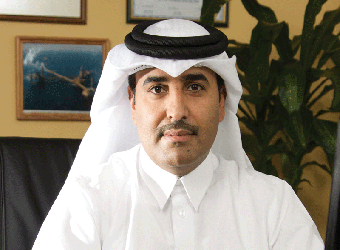Qatari Developers to promote sustainable urban development at world’s largest real estate exhibition
Qatar’s world-class development companies will take centre stage at a unique national pavilion at MIPIM, world’s largest real estate development event, as the country reinforces its position as a global leader in urban planning, construction and sustainable development.
The Qatar Pavilion, organised by and Msheireb Properties, Qatari Diar, Real Estate Investment Company and Lusail Real Estate Development Company, will also be the venue for the inaugural Qatar Urban Forum, a new platform that aims to address the most pressing issues surrounding urban development and demonstrate Qatar’s commitment to establishing itself as a thought leader in sustainable development.
The three companies are amongst the biggest in the region, with Qatari Diar currently planning developing 49 projects in 29 countries. The companies’ combined portfolio amounts to a total value over US$40 billion.
The joint participation is driven by the shared role of the companies towards the realisation of Qatar’s National Vision 2030 and the country’s common approach towards the adoption of sustainable development and preservation of urban identity. Knowledge sharing was also the inspiration for the Qatar Urban Forum, which will encourage dialogue among an international community of experts, and business leaders directly connected with the cause of progressive, sustainable urban development.
Eng. Issa M. Al Mohannadi, CEO of Msheireb Properties, said: “Qatar Pavilion is one of the very first national pavilions to be staged at MIPIM, and we look forward to further awareness of brand Qatar on the real estate international platform. The presence of Msheireb Properties, last year attracted thousands of visitors who were impressed by the company’s architectural vision for a future Doha. This year we aim to share the significant progress we have made over the past year with all those participating in MIPIM. Given the pioneering work we are currently undertaking in this field, we believe that we have a significant contribution to make in terms of sharing our knowledge and experience with the industry.”
Eng. Mohammed bin Ali Al Hedfa, Group CEO of Qatari Diar, real estate arm of the Qatar Investment Authority, said: “With high-profile projects in the United Kingdom and across Europe, developments throughout the Middle East and North Africa, and a growing portfolio in Asia, Qatari Diar has prompted the rest of the industry to sit up and take notice of the immense potential that Qatar and the region hold. The Qatar Urban Forum at MIPIM is an excellent opportunity to further raise Qatar’s profile in the global real estate market, and engage in the international debate on urban development.”
A subsidiary of Qatari Diar, the Lusail Real Estate Development Company (LREDC) is developing a brand new city to the north of Doha that will eventually be home to nearly a quarter of a million people. Eng. Essa Mohammed Ali Kaldari, CEO of LREDC, said: “Lusail represents the future of Qatar, and as such we are delighted to be participating in MIPIM and contributing to the debate on the future of urbanism. As the largest gathering of real estate professionals and thought leaders, with significant international media presence, MIPIM presents all QP participants with an ideal platform to share Qatar’s unique approach in development, one which takes into account preservation of identity and commitment towards sustainability.”
The chosen theme for the Qatar Urban Forum will be ‘Sustainable Architecture and Urban Development’ which aims to provide a platform to examine and discuss solution-oriented methods for implementing sustainable development and urbanism. The discussions will encourage and stimulate more ideas and useful insights regarding architecture and urban development within the context of sustainability.
The Forum will focus on the phenomena of increasing contradictions between the ‘modernisation’ of regions on the one hand and the cultural identity of these places; and intends to use this proposition as a point of departure to explore and examine the various discourses regarding regionalism, globalization and their impact on the built environment.



